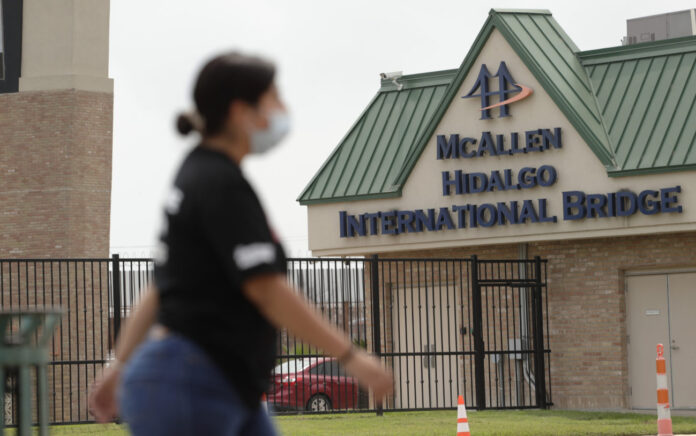The U.S. Department of Homeland Security is working with border community officials to identify criteria in an effort to ease restrictions on current travel through land ports.
On the heels of the news that DHS officials extended non-essential travel restrictions for another 30 days, U.S. Rep. Henry Cuellar, D-Laredo, said he was grateful that discussions between the entities were moving forward.
“Though I would have preferred that (DHS) partially ease the restrictions on non-essential travel on October 21st, I am grateful to see that for the first time DHS is now working closely with Mexico and Canada to identify safe criteria to ease the restrictions in the future and support our border communities,” Cuellar said. “I thank Acting Secretary (Wolf), CBP Commissioner Mark Morgan and their team for recognizing the dynamics at the border.”
The restriction extension, announced Monday by Wolf, was not the news Cuellar was hoping for last week during a roundtable in Starr County where he discussed a letter he drafted to DHS urging for a “lifting” of non-essential travel restrictions that have been in place since late March.
In a Tweet Monday, Wolf stated the restriction would be extended another 30 days and that DHS was “working closely with Mexico & Canada to identify safe criteria to ease the restrictions in the future & support our border communities.”
In late March, amid COVID-19, the U.S. and Mexico entered into a joint agreement restricting non-essential travel along the U.S.-Mexico border. Non-essential travel includes travel that is considered tourism or recreational in nature.
In a letter dated Oct. 6 to DHS, Cuellar requested the agency “establish and implement a community-based program to partially lift COVID-19 travel restrictions,” for those travelers deemed “non-essential.”
During the roundtable, Cuellar underscored the importance of travel for recreational and business purposes for border communities, saying that October, November and December are crucial to businesses that operate in communities along the border.
The congressman said part of his proposal requires DHS officials to consult with “local community leaders” to determine criteria to partially lift travel restrictions, as well as “restoring non-essential traveler lanes and reinstating U.S. Customs and Border Protection officers to oversee traffic in those lanes.”
But ultimately, Cuellar said it would be up to the leaders in each border community to make the final call on lifting any travel restrictions.
On Tuesday, the city of Roma was the first to publicly announce through a news release that they had met with CBP officials as part of Cuellar’s proposal with DHS.
Roma officials said they had decided against re-opening their land port to non-essential traffic, citing public health as the driving factor after meeting with CBP officials on Monday.
Their bridge will remain closed to “non-essential” pedestrians and car traffic.
Roma Mayor Roberto A. Salinas said discussions and the decision centered on public safety amid an unprecedented pandemic.
“We understand that local businesses on both sides of the river are hurting but public safety must remain our priority. We will remain in contact with each other and continue to monitor the situation,” the release reads in part.
Cuellar, who said he was pleased to hear Roma had met with CBP officials and made a decision, remained optimistic that talks between the government agencies and border community officials are moving forward.
“I am encouraged that DHS is currently working in partnership with local governments along the border to establish and implement a community-based program to partially ease COVID-19 travel restrictions for “non-essential” travelers at land ports of entry. We are working with DHS to develop a plan that balances the health of the individuals and the health of the border economy,” Cuellar said.
The congressman said he was meeting with CBP officials again Tuesday afternoon to further discuss reopening land ports along the border.
The restriction at U.S.-Mexico land ports, which is in effect until Nov. 21, is for travel that is considered tourism or recreational in nature.




